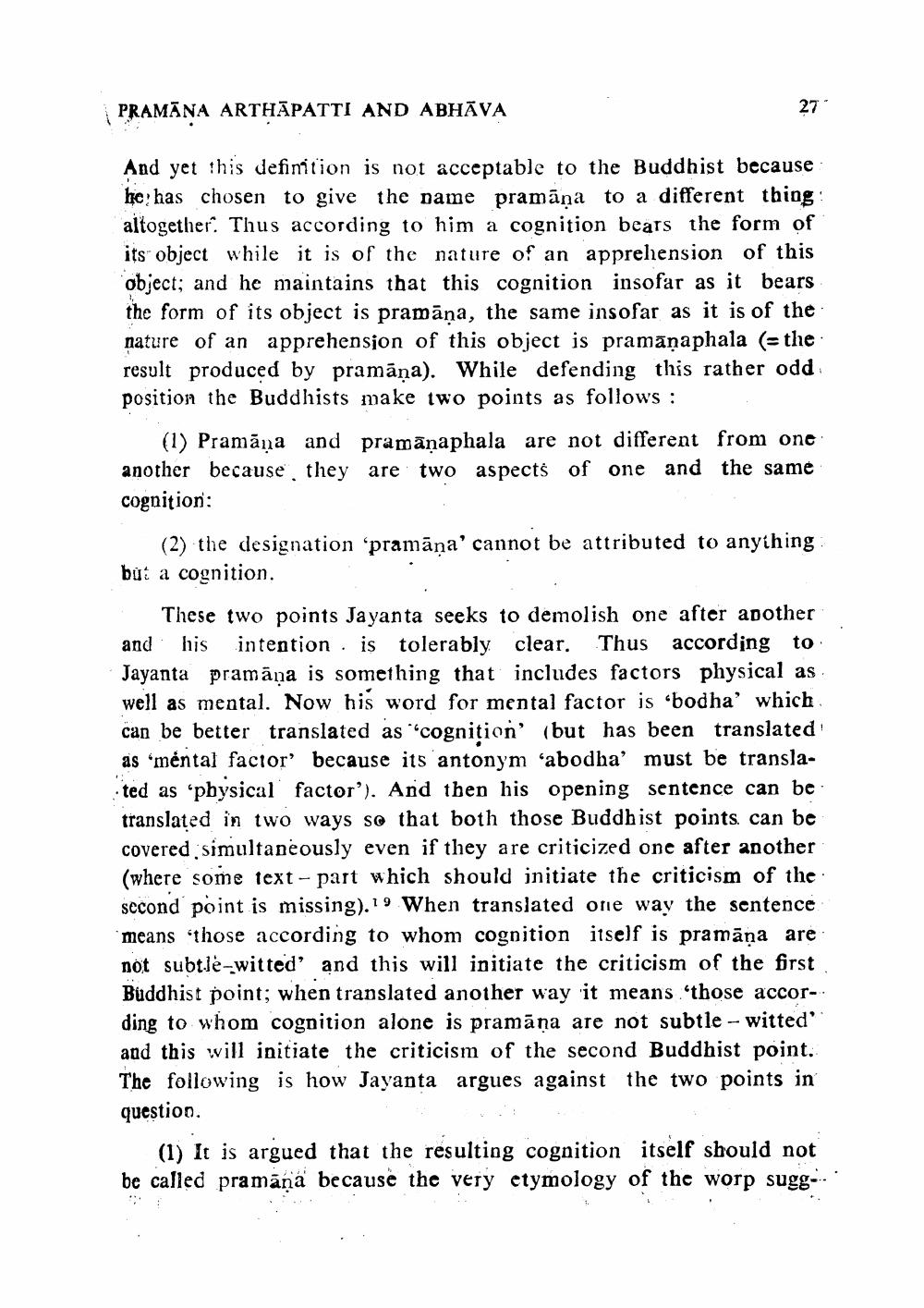________________
| PRAMĀNA ARTHĀPATTI AND ABHĀVA
27
And yet this definition is not acceptable to the Buddhist because he has chosen to give the name pramāna to a different thing altogether. Thus according to him a cognition bears the form of its object while it is of the nature of an apprehension of this object; and he maintains that this cognition insofar as it bears the form of its object is pramāna, the same insofar as it is of the nature of an apprehension of this object is pramāņaphala (= the result produced by pramāņa). While defending this rather odd position the Buddhists make two points as follows:
(1) Pramāna and pramāṇaphala are not different from one another because they are two aspects of one and the same cognition:
(2) the designation ‘pramāņa' cannot be attributed to anything but a cognition.
These two points Jayanta seeks to demolish one after apother and his intention is tolerably clear. Thus according to Jayanta pramāna is something that includes factors physical as well as mental. Now his word for mental factor is bodha' which can be better translated as "cognition' (but has been translated as 'mental factor' because its antonym "abodha' must be translated as “physical factor'). And then his opening sentence can be translated in two ways so that both those Buddhist points can be covered simultaneously even if they are criticized one after another (where some text - part which should initiate the criticism of the second point is missing).19 When translated one way the sentence means "those according to whom cognition itself is pramāna are not subtle-witted' and this will initiate the criticism of the first Buddhist point; when translated another way it means "those according to whom cognition alone is pramāna are not subtle-witted' and this will initiate the criticism of the second Buddhist point. The following is how Jayanta argues against the two points in question.
(1) It is argued that the resulting cognition itself should not be called pramāņa because the very etymology of the worp sugg -




